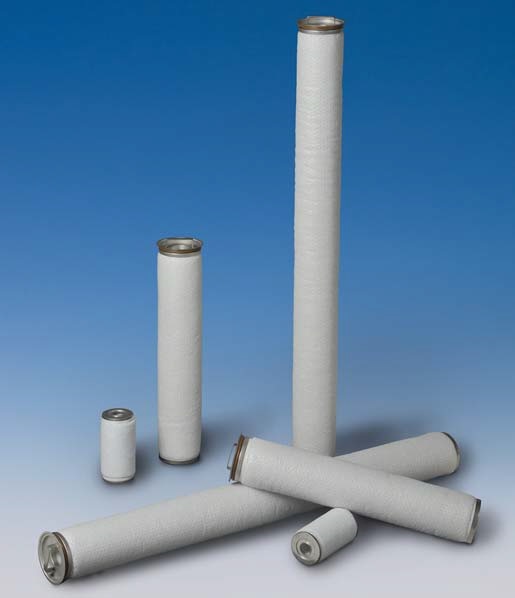Effectively Separate Liquid/Liquid Dispersions on Medium, Coarse, or Higher Solids Emulsions
Description
The AquaSep EL system is a multiple-stage system starting with filtration to remove particulate matter, followed by either a one-stage horizontal coalescer or a two-stage integrated vertical coalescer/separator stack to separate the two liquid phases. AquaSep EL coalescers will remove free water to a level as low as 15 ppmv1 and be effective over a wide range of conditions such as inlet liquid contaminant concentration as high as 10% and interfacial tension less than 20 dynes/cm.
Table 1: Coalescer Selection Guide
| Process Condition | Recommended Product |
| The dispersed phase fluid is aqueous and a horizontal footprint is acceptable | AquaSep EL coalescer in a horizontal housing without separator |
| The dispersed phase fluid is oil and the continuous phase fluid is aqueous | |
| The dispersed phase fluid is aqueous and minimal footprint is required | AquaSep EL coalescer/separator stack in a vertical housing |
AquaSep EL Coalescer— Horizontal Housing Configuration
In a horizontal housing, the liquid/liquid mixture enters the coalescing element and flows inside-to-outside, small liquid dispersed phase droplets suspended in the continuous phase come together, or coalesce, as the mixture moves through the AquaSep EL coalescer. The large coalesced droplets of the dispersed phase separate by gravity in the horizontal housing and are removed. The size of the housing is a function of the flow rate, IFT, viscosity, and specific gravity of the liquids.
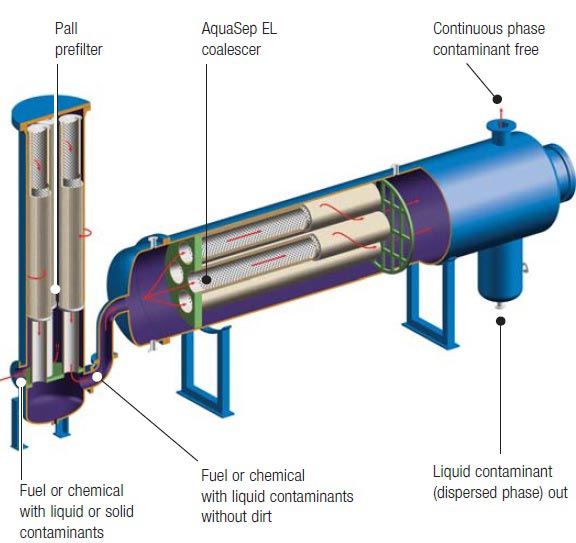
Figure 3: AquaSep EL Liquid/Liquid Separation System with Coalescer in a Horizontal Housing with a Prefilter
AquaSep EL Coalescer/Separator Stack— Vertical Housing Configuration
The liquid/liquid mixture enters the coalescing element and flows inside-to-outside. Small liquid droplets suspended in the continuous phase come together, or coalesce, as the mixture moves through the coalescer medium.
Contaminant-free liquid and large droplets of the dispersed phase flow toward the separator located directly below the coalescer stage. The flow is outside- to- inside. The separator medium is hydrophobic preventing the aqueous phase from entering the separator. Only the non-aqueous continuous phase fluid flows through the separator. The two liquids are removed by separate drain connections.
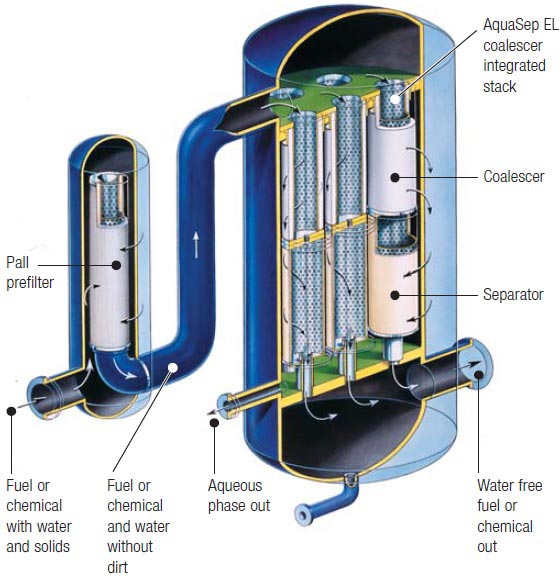
Figure 4: AquaSep EL Liquid/Liquid Separation System with an Integrated Coalescer/Separator Stack in a Vertical Housing with a Prefilter
Typical Applications
Not all coalescers provide a high quantitative removal of dispersed liquid contaminants and can handle emulsions with low interfacial tensions (IFTs). For example, conventional cartridge and mesh pack coalescers made of glass fiber media begin to lose efficiency when the IFT of the emulsion gets below 20 dynes/cm. In contrast, the new AquaSep EL coalescer from Pall is constructed of a high-efficiency, polymeric medium, making it well suited for numerous liquid/liquid separation applications with very low IFTs including:- Water removal from hydrocarbon condensates before stabilization, fractionation or pipeline transport
- Removal of oil from sour water to protect sour water stripping (SWS) as well as downstream sulfur plant and water treatment operations
- Water removal from high solids coker fractionates
- Performance upgrades to existing cartridge or mesh pack coalescers, sand beds and ESPs
- General oil/water separation needs across upstream, midstream and downstream processes
| Maximum operating temperature | 60°C/140°F |
| Maximum differential pressure | 3.4 bard/50 psid at 21°C/70°F |
| Recommended change-out | 1.0 bard /15 psid at 21°C/70°F |
Comparative Performance
Pall’s new AquaSep EL liquid/liquid coalescer system is a lower cost solution to separate higher solids and medium to coarse emulsions versus competitive cartridge coalescers, mesh pack coalescers, sand beds and electrostatic precipitators (ESPs). Its cost effectiveness is due to the ability of each coalescer element to process a higher flow in a higher solids environment while still providing superior effluent quality. For existing cartridge coalescer systems, the AquaSep EL element provides superior continuous removal of liquid contaminant thereby making it a more reliable solution than competitive offerings. See Figures 1 and 2 below.
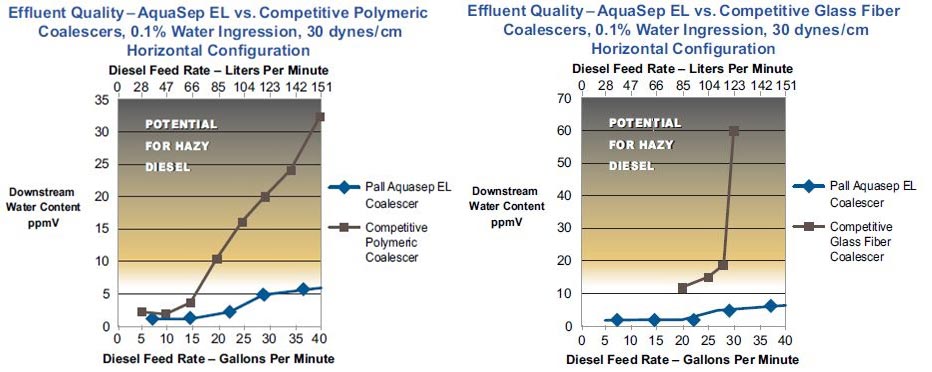 |
|
| Figure 1 | Figure 2 |
Product Benefits
| Features | Advantages | Benefits |
| High Performance, Coarse Grade Polymeric Medium |
|
|
|
|
|
|
|
|
|
|
|
| Non-disarming Medium |
|
|
|
|
|
| Availability of a High Performance Integrated Stack Design— Coalescer and Separator |
|
|
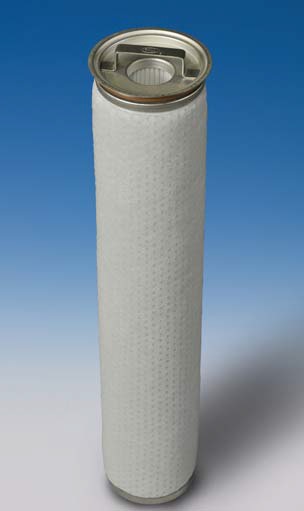 |
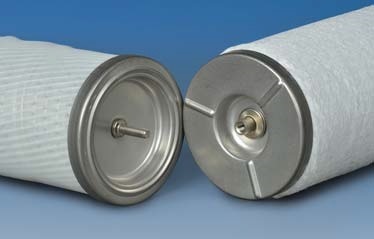 |
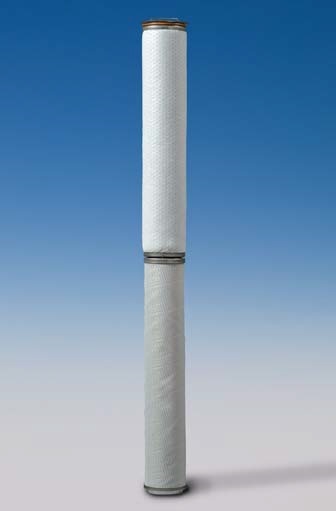 |
|
Left: Top end cap and o-ring seal of Pall’s coalescer |
Earn 10% off* your next order online by leaving a review of this product. Please login to your account to leave a review. We appreciate and value your feedback.
*Subject to Terms and Conditions.



